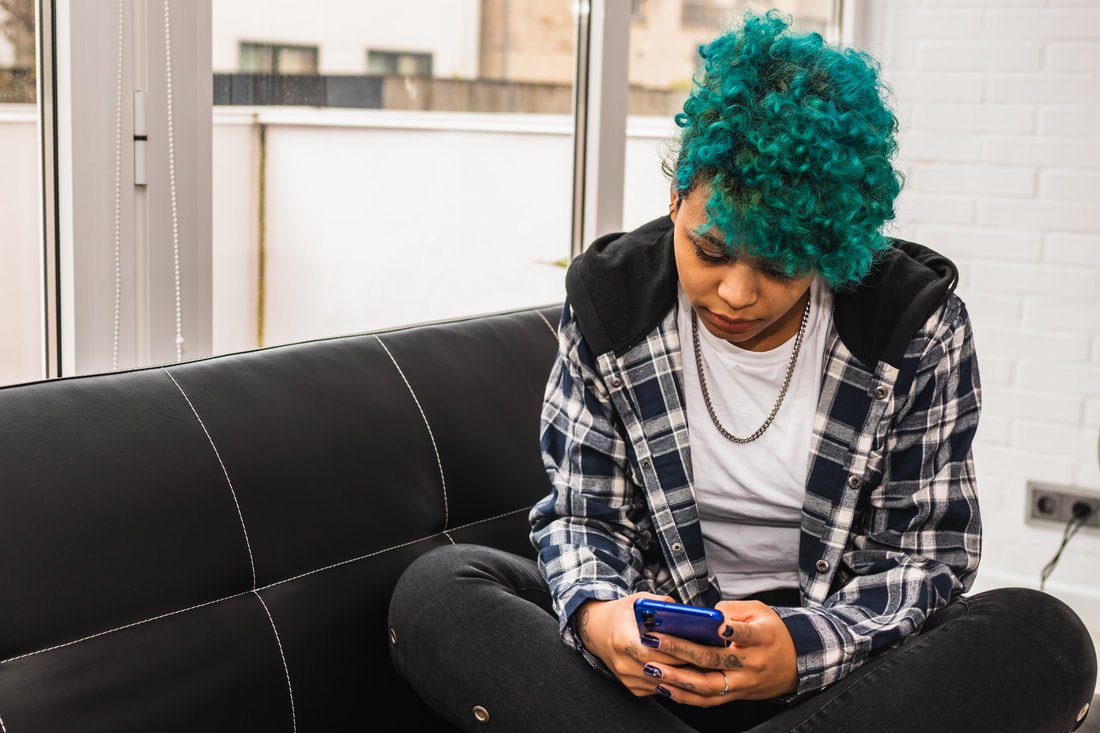
So, Why Doesn’t It Stop?
Online sexual exploitation is hard to spot, and the COVID-19 pandemic hasn’t made it any easier. The ongoing effects of COVID-19 and physical distancing have left many people feeling isolated, and some have turned to social media platforms and dating apps to find community and a sense of belonging.
Why Doesn't It Stop?
Lack of awareness – get to know the signs
Online sexual exploitation is hard to spot, and the COVID-19 pandemic hasn’t made it any easier. The ongoing effects of COVID-19 and physical distancing have left many people feeling isolated, and some have turned to social media platforms and dating apps to find community and a sense of belonging.
What can you do?
1. Understand that it doesn’t always happen the way you think it does.
Online sexual exploitation can take many forms. Although exploiters are often male, they aren’t always working alone; they may have a female accomplice to lure and control other female-identifying or gender diverse people to help them exploit others. And it can happen in person as well. In such instances, most times, the predator is not a stranger. Many survivors of sexual exploitation were victimized by someone they knew.
2. Learn how exploiters find their victims and who is at risk of online sexual exploitation.
Predators can find their victims through friends or relatives or online using dating apps or social media sites, such as Instagram, TikTok, Omegle or Snapchat. Anyone can become a victim of online sexual exploitation—there is no “type.” Women and girls are particularly at risk, especially those who identify as Black, Indigenous, a person of colour, a newcomer or 2SLGBTQ+. Additionally, youth who are or who have been in foster care are at a heightened risk of online sexual exploitation.
3. Be aware of the signs of online sexual exploitation.
If someone you don’t know sends you a friend request or starts following you, liking all your photos and sending you private messages full of compliments, this may be a sign that they are looking to exploit you. Here’s what you can do:
Protect your account so only those you know can follow your posts and send you messages.
Check out their profile to see the types of images they are posting.
Do not respond to direct messages from people you don’t know.
If someone is persistent and keeps sending you friend requests on the same platform or multiple platforms, block or report them.
If someone you don’t know sends you sexual content without your permission, report and block them.
If you end up with a new friend, sometimes, these new connections may ask you to do sexual acts that you are not comfortable doing or ask you to watch while they do sexual things. They may make sexual comments about your photos or posts or send you sexual images without your consent. Don’t do it. This is one of the forms sexual online exploitation can take. If you are being exploited online, there is support.
4. Find the help and supports your need.
If someone tries to exploit you or someone you know online, remember, it’s not your fault and there are places you can go for help. It also helps to know the stages of online sexual exploitation and what you can do to get help.


